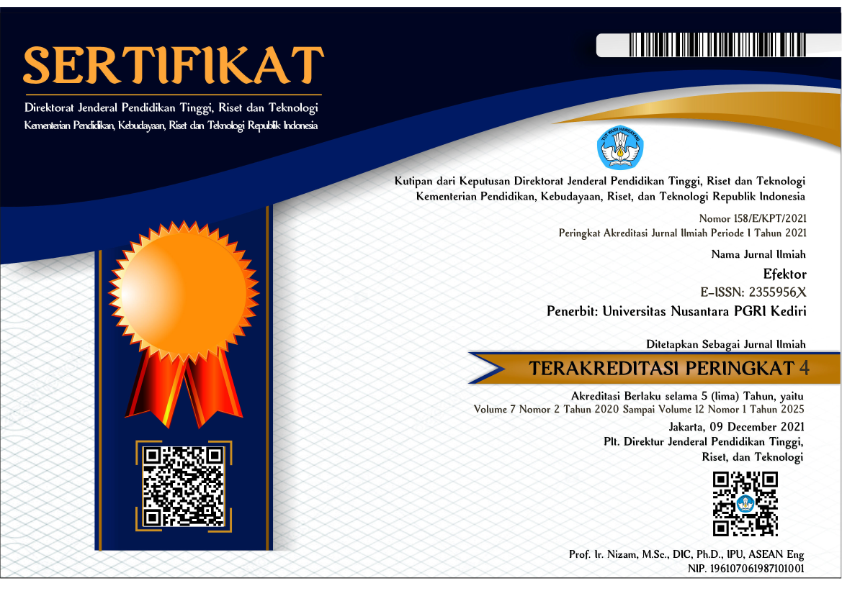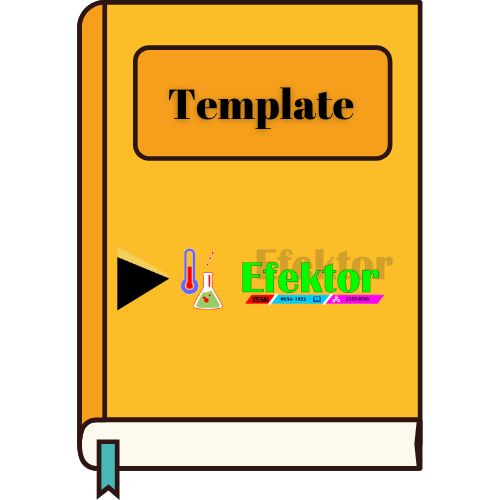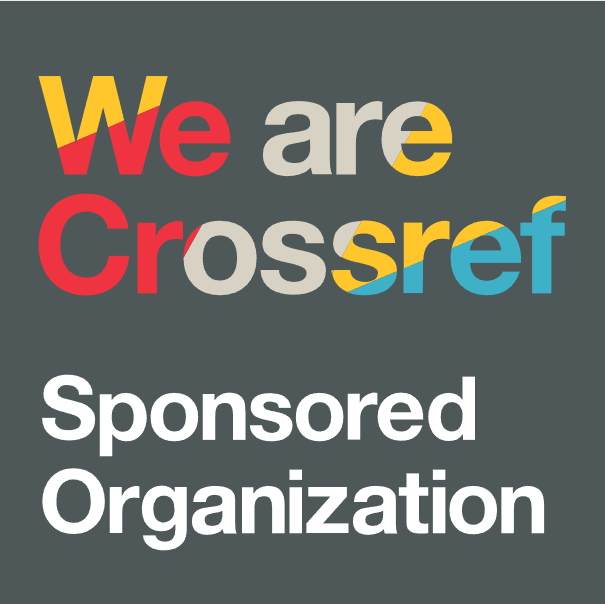Role-Play As A Method To Overcome Students’ Anxiety In Speaking Skill
DOI:
https://doi.org/10.29407/e.v5i1.11918Keywords:
role-play method, students’ anxiety, speaking skillAbstract
English Language becomes one of compulsory subject and tested on National Examination. Then, students are expected to not only pass the National Examination but also can master skills in learning English. The most difficult skill to be mastered is speaking. It caused of the lack of motivation from students, the inappropriate method used by the teacher, and the use of media. In other reason, students are rarely given time to practice. It makes them feel anxiety when they are speaking. To overcome that problem teacher can use role-play method in order to overcome students’ anxiety in speaking skill. Through this method, students are fully involved in the activity and have chance to speak with their friends.
References
Arham, R. et al. 2016. The Use of Role Play to Improve Teaching Speaking. International Journal of Scientific and Research Publications, Vol. 6, Issue 3, March 2016.
Hadi, L. H. 2015. Using the Role-Play Technique to Improve the Speaking Skills of Grade XI Students of SMAN 1 Panggang in the Academic Year 2014/2015. Skripsi. Universitas Negeri Yogyakarta.
Kusnierek, Anna. 2015. Developing Students’ Speaking Skills Through Role-Play. World Scientific News 7 page 73-111.
Nopiani, K. A. 2014. TEACHING SPEAKING SKILL THROUGH ROLE PLAY TO THE SEVENTH GRADE STUDENTS OF SMP NEGERI 1 PAYANGAN IN ACADEMIC YEAR 2013/2014.Tesis. Universitas Mahasaraswati Denpasar, Bali.
Panjaitan, M. O. 2013. ANALISIS STANDAR ISI BAHASA INGGRIS SMP DAN SMA
(ANALYSIS OF CONTENT STANDARDS FOR ENGLISH IN JUNIOR SECONDARY SCHOOL AND SENIOR SECONDARY SCHOOL). JurnalPendidikandanKebudayaan, Vol. 19, Nomor 1, Maret 2013.
Sumpana. 2010. IMPROVING THE STUDENTS’ SPEAKING SKILL BY ROLE PLAY ( A Classroom Action Research on the Eleventh Grade Students of Immersion Program 1 of the State Senior High School of Karangpandan Academic Year 2009/2010). Tesis. Universitas Muhammadiyah Surakarta.
Downloads
Published
Issue
Section
License
Authors who publish with this journal agree to the following terms:
- Copyright on any article is retained by the author(s).
- The author grants the journal, the right of first publication with the work simultaneously licensed under a Creative Commons Attribution License that allows others to share the work with an acknowledgment of the work’s authorship and initial publication in this journal.
- Authors are able to enter into separate, additional contractual arrangements for the non-exclusive distribution of the journal’s published version of the work (e.g., post it to an institutional repository or publish it in a book), with an acknowledgment of its initial publication in this journal.
- Authors are permitted and encouraged to post their work online (e.g., in institutional repositories or on their website) prior to and during the submission process, as it can lead to productive exchanges, as well as earlier and greater citation of published work.
- The article and any associated published material is distributed under the Creative Commons Attribution-ShareAlike 4.0 International License













